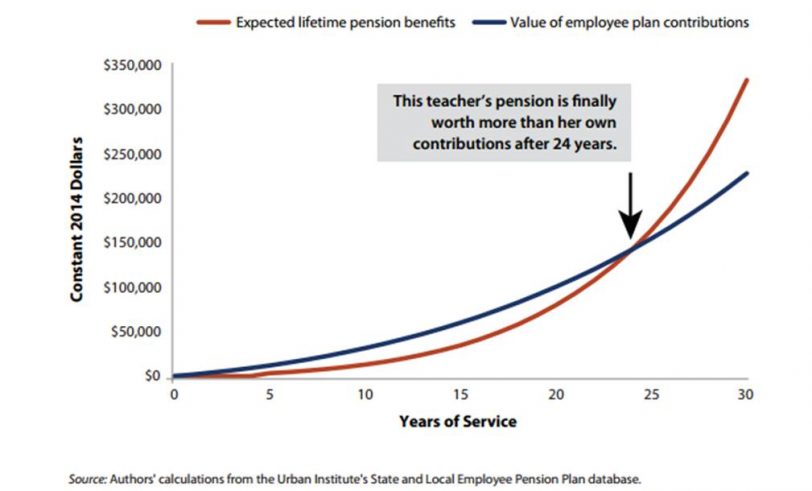For Most Teachers in Missouri, Pensions Are a Raw Deal

“Educators and education employees can focus on what they do best, educating and supporting the education of Missouri’s school children. After a full career of serving the children of this state, educators and education employees can retire with the peace of mind that they have financial security via a monthly benefit from the Systems.” [emphasis mine]
—Steve Yoakum, executive director of the Public School Retirement System of Missouri (PSRS)
Steve Yoakum is absolutely right. As I have often said, teacher pensions are great for those who stay for 30 years, but they are not for those who don’t. Indeed, this was the key finding of a recent report by researchers at Bellwether Education Partners and The Urban Institute.
The report examines how the value of teacher contributions and teacher pension benefits accrue. In Missouri’s system, 29% of a teacher’s salary is contributed to the pension, 14.5% from the district and the teacher. As you might imagine, these contributions accumulate over time. Unfortunately for teachers, the value of their pension does not accumulate at the same rate because the pension is not tied directly to contributions. The illustration above shows how the value of the contributions can exceed the value of the benefits.
The report finds the break-even point for Missouri teachers is 28 years. That means a Missouri teacher must work for 28 years before the value of their pension exceeds the value of their contributions.
But how many teachers actually make it to 28 years? According to the report, just 38%. In other words, 62% of Missouri teachers are going to pay more into the pension system than they are going to get out.
“After a full career,” Missouri’s teacher pensions are great. For those not working a full career, Missouri’s teacher pension system is a raw deal. We could fix this, and solve a host of other pension problems, by moving from a defined-benefit plan to a defined-contribution plan. Until we begin to tie retirement benefits directly to contributions, many teachers will continue to get shortchanged.

